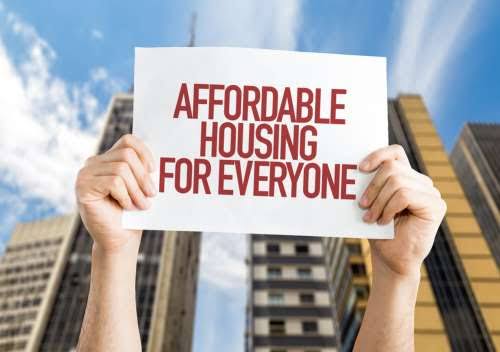2023 : A path breaking year for Redevelopment
2023 : A path breaking year for Redevelopment
Since its inception in the late 90s, it has been the incentives to Developers that drove the redevelopment story. Incentives have now reached their natural limit. Where does it go next in Mumbai? And will the redevelopment story move to other cities in India ?
------- ------- ------- ------- ------- ------- ------- ------- ------- ------- ------- ------- ------- -------
In most industries, a year becomes path-breaking due to the activities that begin in that particular year. Real Estate is an industry with a lag and therefore a year would be path-breaking due to the activities that happened in the previous one or two years. Now, before you think that this blog on redevelopment is only about Mumbai, hold on.
2021 & 2022 saw big fillip being given to redevelopment in Mumbai through reduction/deferment of FSI premium etc. In 2023, these incentives will result in spate of redevelopment projects across Mumbai to the extent that by 2026 residents of places like Bandra may see a completely different skyline.
Redevelopment has many challenges in terms of project finance, transit accommodation, etc. but it also brings unique value proposition in urban development. By avoiding horizontal expansion city saves on cutting tries, new parking slots reduce load on streets and most importantly land reserved for widening of road is made available to the city.
In 2023, the challenge that will be difficult to handle is stalled redevelopment projects. NCLT found normal real estate projects extremely difficult to settle, largely because such projects had financial creditors and home buyers at logger heads. In redevelopment projects, NCLT will see another category of claimants – the existing tenants. Tenants do not advance any money to developer yet lend an important element “the land title”, so shouldn’t they be treated at par with secured financial creditors? Shouldn’t tenants be treated at par also with new home purchasers? Should the highest bidder be judged on the basis of largest sum offered to the financial creditors or on the delivery time to the new home purchasers or on the basis of largest area to the tenants? There is no one answer. If a few big redevelopment projects land up at NCLT, we will have a legal quagmire creating more wealth for lawyers than for stakeholders in the project.
Next, 2023 could see, Dharavi Rehab project with first the set of plans. Amidst this submission, debates will continue to go on - Why should tenants of Dharavi get more area than other tenants in other slum projects ? Why should Dharavi get such a high FSI ? And most importantly, when we all know that a good number of tenants will sell their rehab units and move to distant locations, why should the developer not be allowed to directly offer tenants two units at a distant location (extra unit will give tenants their profit and reduced construction in Dharavi would make Dharavi green and less congested) ?
Despite such debates, redevelopment has to go on. This is because, across India, due to environmental and commuting issues, expanding horizontally will become less viable,. Further due to their dilapidated conditions many old properties will necessarily need reconstruction. The big question will be, who will pay for the reconstruction ? The reason that 2023 will see these discussions across many Indian cities is because during the last three years, these cities have seen significant rise in land prices and it is the high land prices that actually drive redevelopment. High land prices result in high realisation from free-sale area which enables the developer to offer free homes to existing tenants. And, free homes is the necessary evil for consent from tenants towards redevelopment.
However, as we focus our discussions back on Mumbai, we will see that in 2023, the ‘free home’ story will take a unique twist. The redevelopment story in Mumbai that began in late 1990s continued its upward journey till early 2010s . This was because the property prices were generally rising during this period. 2015 onwards, with home prices stagnating, we saw a big halt in redevelopment activity. Post 2020, we again saw increase in redevelopment activity as the government provided push through incentives that reduced costs.
So when developer had incentives for profits (through higher prices or through lower costs), redevelopment moved ahead. However, with all FSI tools been exhausted, the only tool left with the government is reduced area for tenants – which is a political unfriendly option. And if the government hopes for faster rise in property prices to drive redevelopment, it risks making Mumbai expensive for immigrants as high home prices would result in reduced inflow of professionals to the city.
The tenants hold the political power and the immigrants hold the economic power. Which one to please - it is this difficult question that authorities in Mumbai will face in the times to come.
- Deepesh Salgia is author of the book Real Estate : The Good, The Bad and The Unanswered




ReplyDelete"UNTOUCHED SUBJECT & UNIQUE PROJECT PROPOSAL OF THE WORLD" TOWARDS GLOBAL MOVEMENT SHAPING THE FUTURE"
I am having experance of 36 years (Since 1987) in "Architectural & Industrial Model Making".
I am having unique proposal and *I am looking for liaison person / company will share 75% profit* with very low investment and guaranteed high business of *₹ 30,000 crores.* This will generate 5000 to 25,000 new skilled workers and jobs subsequently.
In-turn it can be established into *“Worlds Unique Industry”
*Partner* for execution of Unique Project Proposal with Indian Governance or any country among world.
#Uniquestartup
#Unlimitedemplyoment
#Unlimitedbusiness
*Ketan Dave*
+918866061088